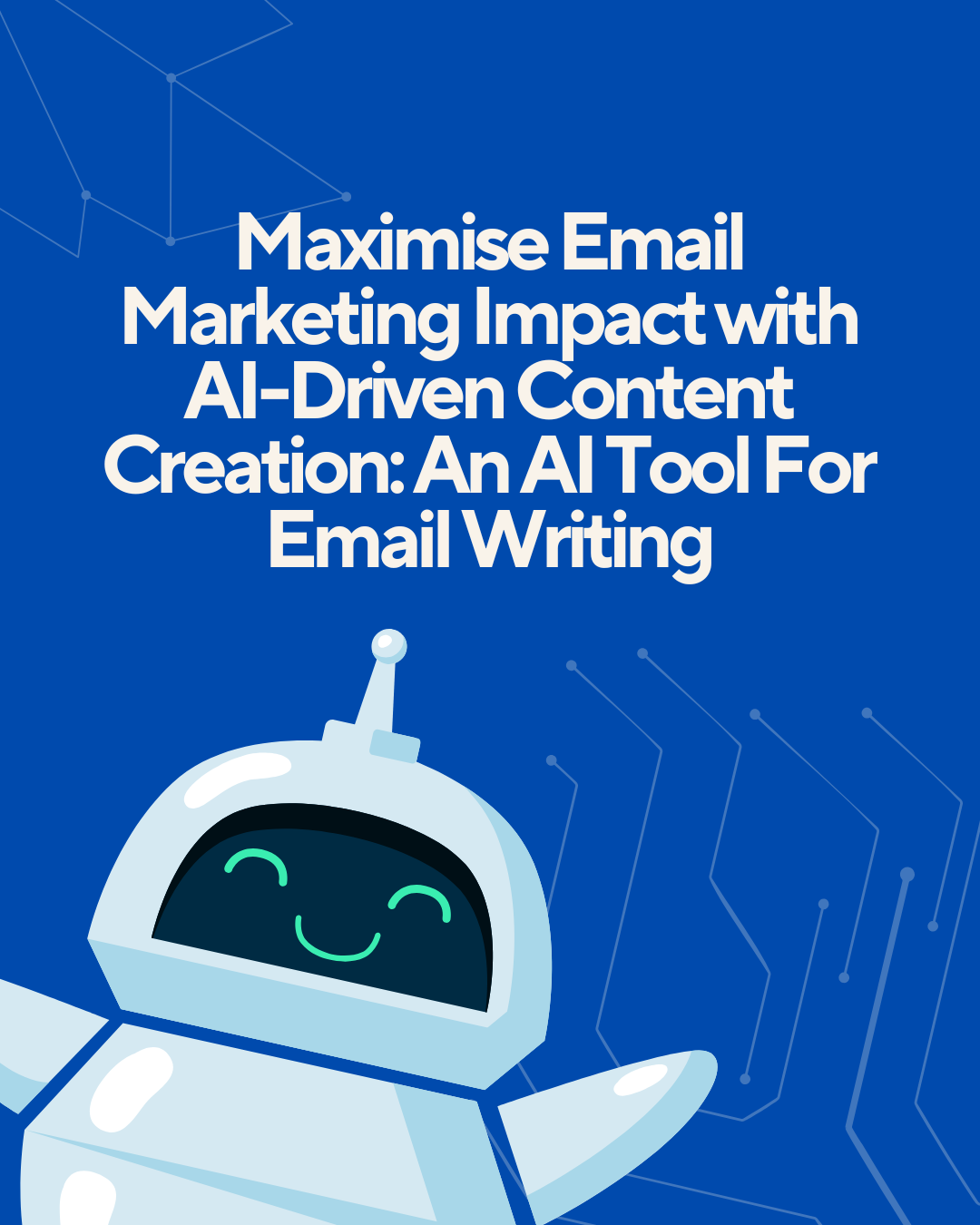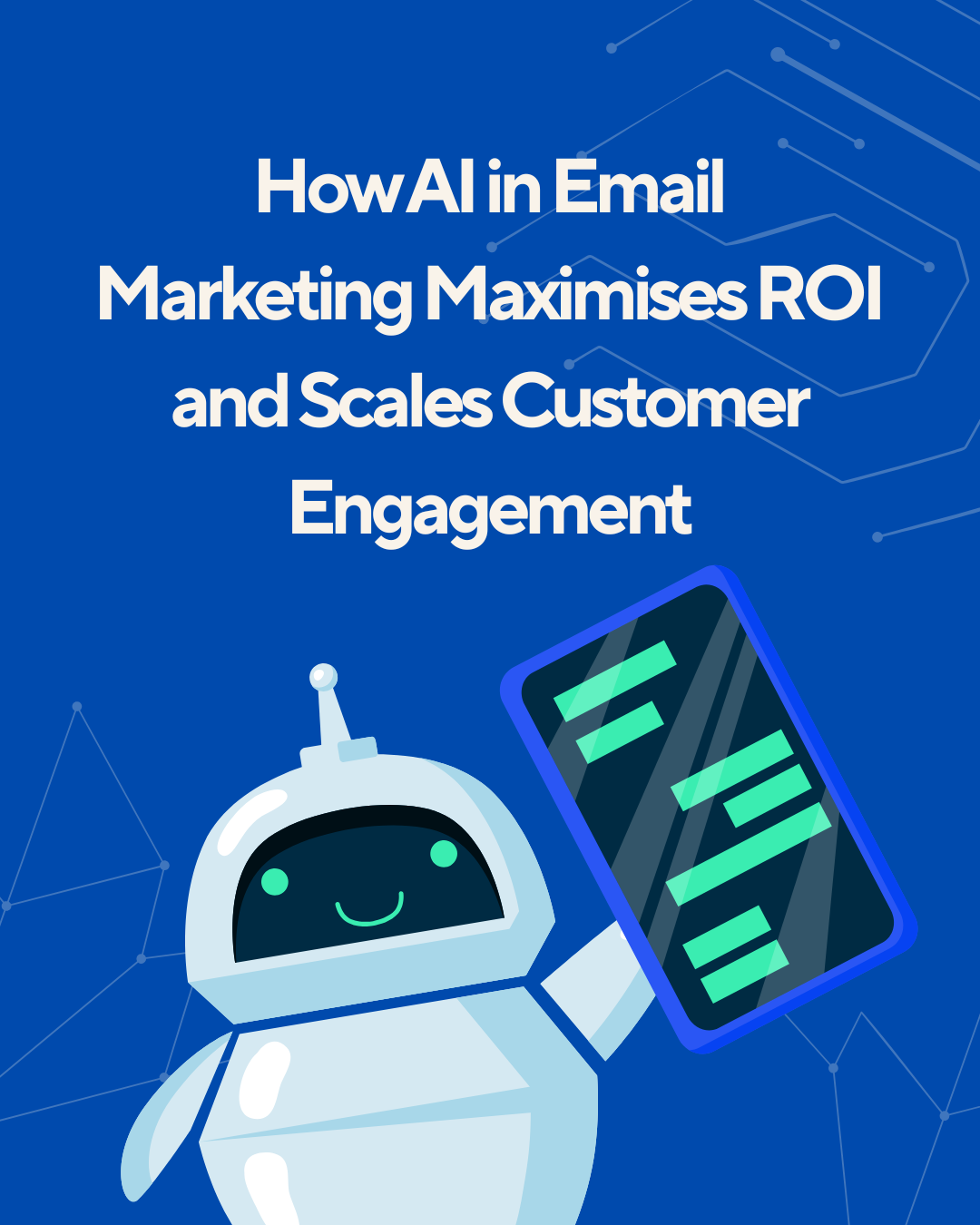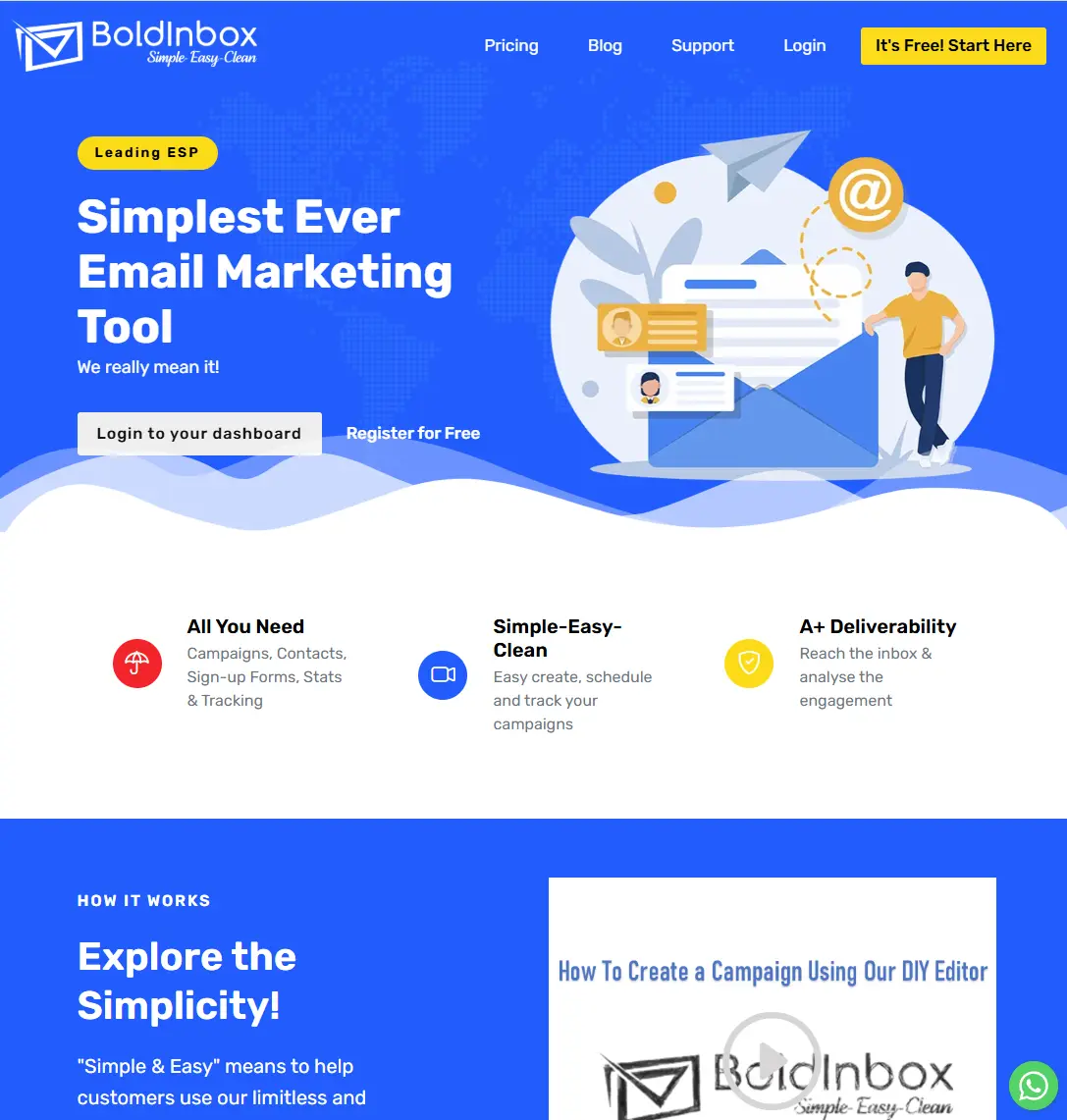AI for Email Marketing: How to Increase Conversions & Revenue in 2025 I Boldinbox
AI for Email Marketing remains the undisputed leader in ROI, with 72% of consumers prioritizing it for brand interactions. Our 2025 data reveals a 15% YoY surge in email volume, fueled by AI-driven hyper-personalization and 38% higher open rates. By leveraging predictive analytics and generative AI, marketers now automate A/B multivariate testing, craft dynamic content via neural networks, and deploy chrono-targeted sends that slash unsubscribe rates by 27%. Yet, as AI adoption accelerates, critical challenges emerge: GDPR-compliant data governance, seamless CRM integration, and bridging the AI-skills gap to avoid fragmented workflows. Platforms like Boldinbox embed NLG tools and sentiment analysis to align email copy with on-page SEO (think semantic keyword clusters and schema markup) while converting high-performing content into backlink-worthy assets for off-page dominance. The key? Pair machine learning precision with human creativity - automating 55% of tasks while focusing on EEAT-aligned messaging that dominates SERPs and inboxes alike. Ready to future-proof your strategy? Dive deeper into AI-optimized CTAs, CLV prediction models, and zero-party data tactics that turn emails into conversion engines with email writing ai free.
AI for Email Marketing 2025’s Critical Challenges for Compliance & Hyper-Targeted ROI I Boldinbox
While AI-driven email marketing unlocks 32% higher CTRs and 22% cost efficiencies, ungoverned adoption risks GDPR penalties, brand trust erosion, and data silos. Here’s how to mitigate pitfalls while aligning with Google’s EEAT guidelines and dominating SERPs:
1. Ethical AI & Privacy Compliance
- Zero-party data strategies and encrypted data lakes are non-negotiable to address bias in lookalike modeling and CLV predictions.
- Implement real-time adaptive algorithms to keep pace with shopping intent shifts and cookie-less browsing trends.
2. Technical Debt & Workforce Gaps
- 53% of marketers lack expertise in NLG (Natural Language Generation) or neural network optimization, bridge this with AI-fluent talent pipelines and no-code platforms like Boldinbox.
- Sync AI with CRM/CDP ecosystems via API-first integrations to avoid fragmented UTM-tagged behavioral data critical for personalization ROI.
3. Data Quality & SEO Synergy
- Garbage-in, garbage-out: AI fails without structured first-party data (purchase histories, engagement heatmaps).
- Align email content with on-page SEO using semantic keyword clusters and schema markup, while repurposing high-performing copy into guest posts for off-page backlink equity.
4. Operationalizing AI Outputs
- Dynamic content generators must feed mobile-first landing pages with <1s load times, critical for Google’s 2025 Core Web Vitals rankings.
- Strategic Fix: Deploy AI audit trails (e.g., Adobe Marketo Engage) to ensure transparency in predictive segmentation and generative content.
Maximise Email Marketing Impact with AI-Driven Content Creation: An AI Tool For Email Writing

Artificial Intelligence is transforming email marketing by enabling hyper-personalised messaging at scale. For instance, a marketer working for a fashion retail brand can easily design an email that highlights curated product suggestions based on a customer’s past purchases and real-time browsing behaviour.
With the power of AI, that single email can evolve into ten or more dynamic variations, each strategically crafted to engage specific customer segments. This ensures your campaigns are not only relevant but also conversion-optimised.
Once you’ve generated a library of targeted email content, AI takes your marketing to the next level by enabling true one-to-one personalisation. By integrating your CRM’s historical customer data, AI can automate the inclusion of personalized offers, exclusive recommendations, and time-sensitive content that matches individual preferences.
But the magic doesn’t stop there. As customers interact with your emails, AI continuously analyses engagement metrics and powers the delivery of the next best email, keeping your audience moving along the customer journey. This intelligent feedback loop ensures your messaging stays relevant, persuasive, and perfectly aligned with both user intent and your business objectives.
Incorporating AI for Email Marketing strategy not only streamlines your content creation workflow but also significantly enhances scalability and conversion potential. Pair this with insights from top trends on Google and apply on-page and off-page SEO strategies to further amplify your reach and ranking in search engines, turning each campaign into a growth engine for your brand.
How AI in Email Marketing Maximises ROI and Scales Customer Engagement

Artificial Intelligence is reshaping email marketing by continuously learning from every customer interaction and refining your campaigns for maximum return on investment. AI-powered systems don’t just automate tasks, they fuel smarter decisions by extracting actionable insights from behavioural data.
Through real-time learning and adaptive algorithms, AI helps you optimize A/B testing faster and more efficiently. Each campaign becomes a data-driven experiment, improving with every send, click, and open.
Modern AI tools integrate seamlessly with your Customer Data Platform (CDP), pulling insights from not only your email campaigns but also website activity, transaction history, and customer engagement touchpoints. This holistic view allows AI to detect patterns, behaviours, and emerging trends across your entire audience.
Once these customer tendencies and connections are identified, segmentation becomes both effortless and highly precise. You can target your messaging with surgical accuracy, ensuring the right content reaches the right audience at the perfect moment.
AI-driven dynamic content personalisation supercharges engagement by tailoring each email to match individual customer preferences, from product recommendations to limited-time offers, creating a personalized experience that drives click-through rates and accelerates conversions.
The result? AI saves you thousands of manual hours, reduces campaign guesswork, and delivers a scalable path to consistently higher ROI. Whether you're targeting new leads or nurturing loyal customers, AI ensures your email marketing remains relevant, responsive, and revenue-focused.
Best Practices for Using AI in Email Marketing
There’s no question that AI-powered email marketing is redefining how brands connect with their audiences. As automation, personalisation, and predictive insights evolve, smart marketers are embracing AI not just as a tool, but as a growth strategy.
Unlock AI’s full power in email marketing with these must-know fundamentals and future-ready practices.
1. Lay a Strong Ethical & Strategic Foundation
Begin with transparency and responsibility. Ethical data practices and compliance with privacy regulations (like GDPR and CCPA) are the cornerstones of successful AI-driven campaigns. Foster a culture of responsible AI use, and ensure your internal teams understand both the power and the limitations of the technology.
2. Define Clear Goals & Build a Roadmap
Before deploying AI tools, know why you’re using them. Whether you’re aiming for higher click-through rates, better segmentation, or improved conversions, defining your success metrics helps guide which AI models or platforms to prioritise.
3. Leverage Embedded, No-Code AI Features
- Start with accessible AI capabilities that don’t require heavy development resources, such as:
- Send-time optimisation to maximise open rates.
- AI-powered content curation and subject line testing.
- Multi-variant email generation for different audience segments.
- These features accelerate personalisation while reducing manual workload.
4. Embrace Real-Time Personalisation
Move beyond static campaigns. Let AI dynamically adjust email content based on real-time behaviour; from browsing patterns to abandoned carts, ensuring that your messaging stays timely and relevant.
5. Utilise Customer Data Platforms (CDPs)
Your email data is only part of the picture. By combining it with insights from sales, support, eCommerce, and web behaviour, AI can map detailed customer profiles and enable precise, segment-based targeting.
6. Segment Smarter With AI
AI allows you to uncover hidden patterns and clusters within your audience. Advanced segmentation leads to campaigns that resonate, convert, and retain, increasing lifetime customer value.
7. Master AI Prompting for Content Creation
Learn how to guide AI with effective prompts to produce fresh, relevant, and on-brand content, whether it’s subject lines, product recommendations, or body copy.
8. Test Intelligently & Iterate Continuously
For reliable results in AI-driven A/B testing, modify just one factor at a time while keeping a stable control group for reference. Modern AI marketing platforms automate this cycle, ensuring faster insights and campaign optimisation.
9. Adopt Closed-Loop Analytics
For true ROI impact, integrate your AI email marketing software with analytics systems that track the customer journey, from email open to web conversion and sales. This makes it easier to measure success and refine strategy.
Why Boldinbox for Bulk Email Campaigns with AI Subject Line Generator
Why Boldinbox is Trusted: Real Reviews on Google Reviews I Trustpilot Reviews

In today’s AI-powered marketing world, Boldinbox stands out as a smart, scalable, and ROI focused bulk email marketing platform, purpose built for brands that want more than just inbox delivery.
What makes Boldinbox different? It fuses powerful automation tools with next generation AI, making it the perfect platform for bulk email campaigns that demand personalization, performance, and precision. Whether you're targeting 10,000 or 1 million recipients, Boldinbox ensures each email is strategically timed, creatively written, and built for results.
Major Advantages of AI in Email Marketing
-
AI Subject Line Generator: Craft compelling, click-worthy subject lines in seconds using machine learning models trained on high-converting email data. Boost open rates by up to 40% by eliminating guesswork and focusing on what works.
-
Dynamic Bulk Campaign Management: Launch large-scale campaigns with segment-level targeting, A/B testing, and smart automation sequences, all within a single dashboard.
-
Zero-Code Customization: No technical skills? No problem. Build responsive email templates, insert personalization tokens, and run automated sequences using a drag-and-drop editor powered by AI insights.
-
Real-Time Performance Analytics: Monitor open rates, CTRs, bounce rates, and customer engagement in real time. Let the platform auto-optimize send times and messaging based on behavioral trends.
-
GDPR & CAN-SPAM Ready: With built-in compliance features and encrypted opt-in data flows, Boldinbox ensures your campaigns are privacy-safe and regulation-compliant.
Whether you're a travel agency, eCommerce brand, or B2B company, Boldinbox helps you maximize every email’s potential with tools designed to improve engagement, conversion, and customer loyalty, all without lifting a line of code.
What’s Next for AI Email Marketing?
AI is evolving from an efficiency booster to an essential creative collaborator. From optimising send times and crafting emotionally resonant subject lines to automating design elements like images and colours, AI eliminates guesswork and accelerates campaign delivery.
As generative AI advances, marketers are reimagining the creative process. The future lies in 1:1 personalisation at scale; where every customer receives content tailored to their unique needs, not just to their segment.
First-party data is also rising in importance. Today’s marketers are shifting from reliance on third-party data to building their own consent-based customer profiles. AI plays a pivotal role in this shift, helping brands collect, manage, and act on first-party insights ethically.
In the next 2 - 5 years, expect AI to guide nearly every step of your email marketing workflow, from audience discovery to content delivery, empowering marketers to focus on AI handles the groundwork, freeing you to focus on strategy and creativity.
Examples of engagement-driving campaigns:
-
Invite: Titans vs Knight Riders, Join Us for the Ultimate IPL Watch Party!
-
Promote: Today’s Gold Rates Are In, Explore New Jewellery Offers Now!
-
Share: Our Summer Jewellery Catalog is Here, See What’s Trending!
Conclusion
As customer expectations rise and marketing landscapes shift, Artificial Intelligence is no longer just a competitive advantage, it’s a necessity. AI-driven email marketing empowers brands to deliver personalised, relevant, and timely messages at scale, turning simple email campaigns into fully automated revenue engines. Email writing AI free without login.
From real-time personalisation and predictive analytics to dynamic content generation and hyper-targeted segmentation, AI amplifies both your creative vision and your bottom line. When combined with sound data ethics, strong customer consent practices, and an integrated tech stack, AI helps you create campaigns that not only engage, but convert.
As you look ahead, blending machine learning precision with human creativity will be the ultimate formula for success. Whether your goal is higher open rates, stronger customer relationships, or maximised ROI, AI is your strategic partner in making every email count.
FAQs
1. How does AI improve email marketing performance?
AI boosts email marketing by analysing customer behaviour in real-time, enabling smarter segmentation, dynamic content creation, and optimised send times, all of which result in higher open rates, click-throughs, and conversions.
2. Can AI help personalise email content for every customer?
Yes! AI enables true one-to-one personalisation by combining customer history, browsing behaviour, and real-time intent signals to dynamically generate customised product recommendations, offers, and messages.
3. Is AI email marketing GDPR-compliant?
It can be, as long as the platforms you use adhere to privacy laws and your business implements clear data governance policies. Consent-based data collection and transparent AI usage are essential for both compliance and customer trust.
4. What types of AI tools are used in email marketing?
Common AI-powered features include:
-
Predictive analytics for customer behaviour.
-
Natural Language Generation (NLG) for content creation.
-
Send-time optimization.
-
Dynamic content personalisation.
-
Automated multivariate and A/B testing.
5. Will AI replace human marketers?
The goal of AI is to streamline tasks, allowing marketers to focus on strategy, not to take their place. It handles repetitive, data-heavy tasks so marketers can focus on strategy, creativity, and emotional intelligence, which remain critical for crafting authentic customer experiences.
6. How can I start using AI for email marketing?
Start small with built-in AI features like subject line optimisation, send-time recommendations, and automated segmentation. As your confidence grows, explore advanced tools like predictive modelling, dynamic content generators, and full CRM-AI integrations.
Tags: Best AI email marketing tools in Delhi, AI for email marketing, AI, AI email marketing generator, Free AI tools for email marketing, AI email marketing tool free, Best email marketing agency Boldinbox, Best AI email marketing tool.

